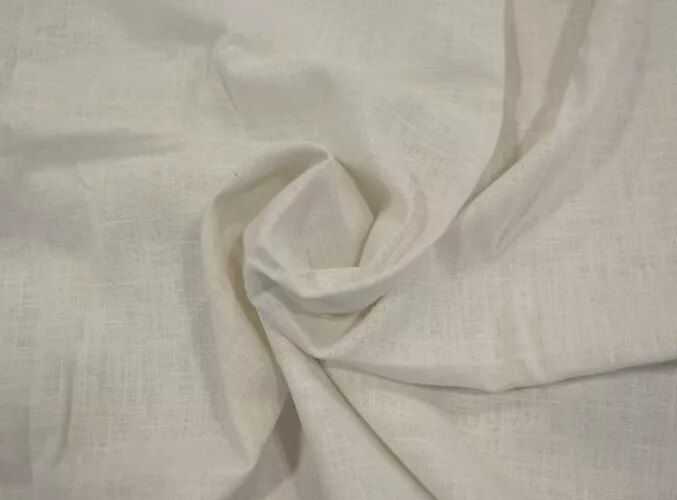Ramie fabric is a natural, eco-friendly material used in the garment and furniture industry due to its durability and resistance to mold and bacteria. It is a great alternative to synthetic fibers and has various applications. Fashion Bandung explains more about ramie fabric and its benefits.
What is ramie fabric?
Ramie fabric, also referred to as ramie, China grass, or ramia, is a completely natural fabric similar to linen or bamboo. It is made from the white fibers of the Boehmeria nivea plant, also known as nettle, and the green fibers are extracted from the Pandanus utilis plant.
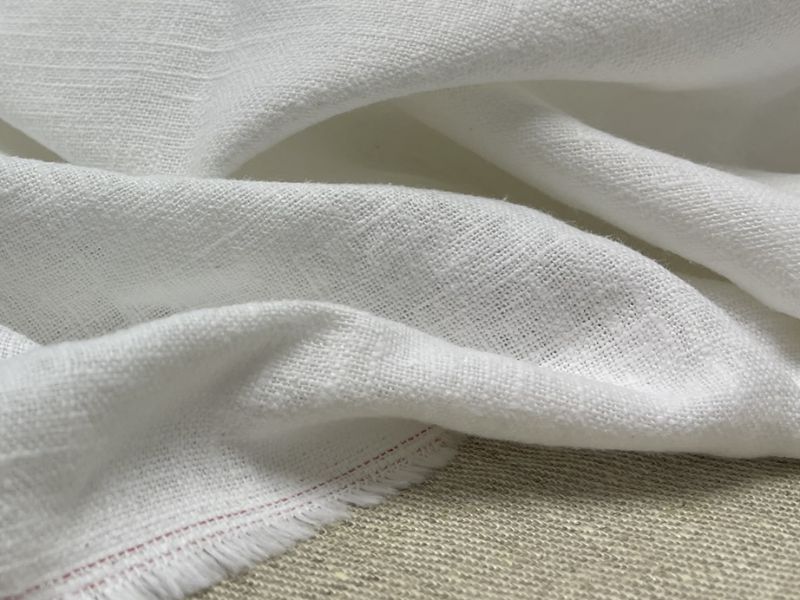
Ramie fabric is entirely natural.
Ramie, a plant with a lifespan of 6 to 20 years, can be harvested up to 6 times per year. It features large, heart-shaped, pyramidal leaves that have a silvery appearance due to the white hairs on the undersides. When fully grown, it can reach a height of 25m. The unbranched roots are used to extract the ramie fiber. However, the fiber requires chemical treatment to remove the gum and pectin found in the bark. Ramie thrives in tropical climates, with Malaysia and China being the top two countries known for its abundance of ramie species.
The fibers obtained from ramie plants are extremely thin, resembling silk, and have a natural white color. Similar to cotton, linen, and rayon, ramie is a cellulose-based fiber that is frequently combined with other natural fibers to create a variety of fabrics, ranging from delicate to coarse linens. Ramie is commonly employed in the textile industry for manufacturing clothing, tablecloths, napkins, and handkerchiefs.
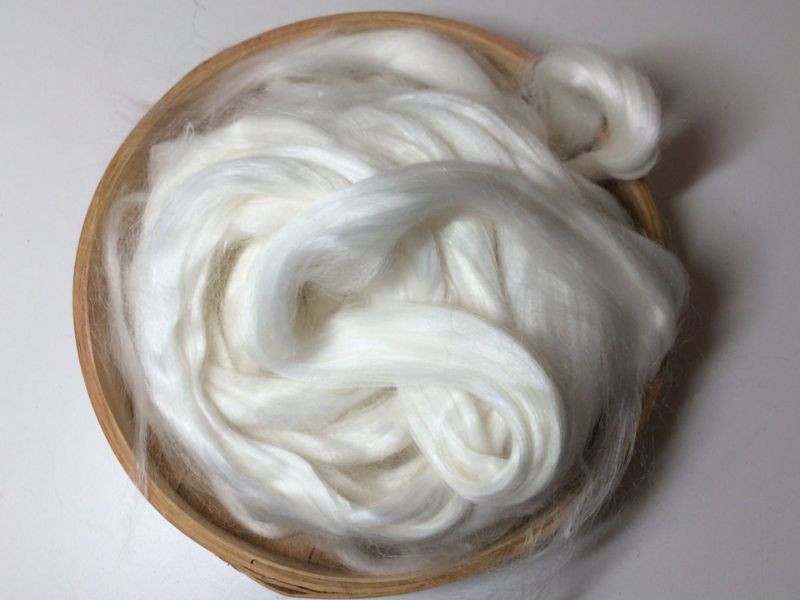
Ramie fiber is derived from the ramie plant and Pandanus utilis.
The primary element of the fabric is cellulose fiber, which is acquired through a meticulous extraction procedure. Throughout the harvesting and production process, no portion of this raw material is discarded. This fabric is environmentally conscious and its fibers are exceptionally sustainable. As a result, it is considered a high-end fabric and commands a higher price.
The fascinating history behind ramie fabric.
Ramie fabric, also known as one of the oldest textile fibers, originated from the Malay Peninsula. This fabric has the unique characteristic of being resistant to bacteria and mold. In fact, it was even used to make mummy cloth in Egypt between 5000 – 3000 BC.
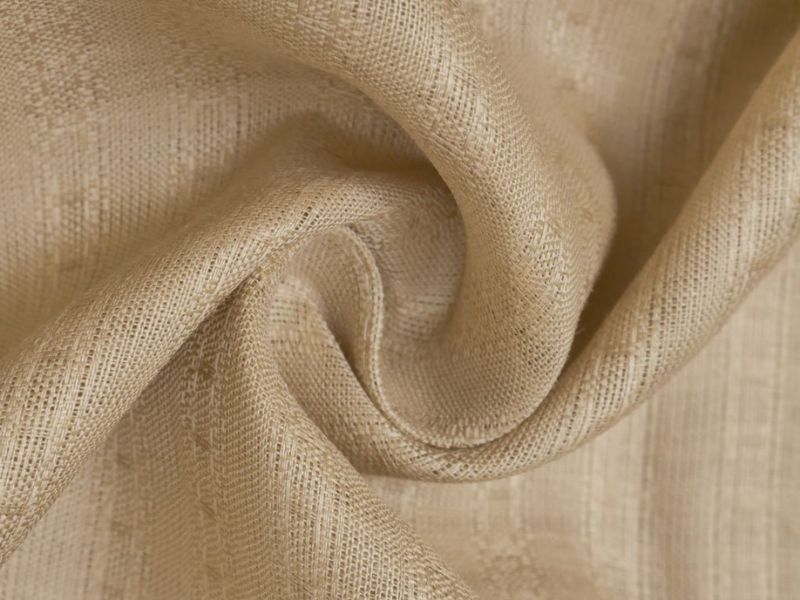
The origin of Ramie fabric is from the Malay Peninsula.
Ramie, known as “zhuma” in China, has been cultivated and used for making clothing and various goods for many centuries. Brazil joined in the cultivation of ramie in the late 1930s, but its production suffered a decline due to competition from synthetic fibers and alternative crops like soybeans. In the 1950s, the Philippines also started growing ramie.
Taiwanese individuals employ hemp for fabric production, specifically for traditional festival costumes. In the early 20th century, French artist Raoul Dufy utilized this fabric to print various patterns, resulting in the costumes becoming more vibrant, departing from their previous solid colors.
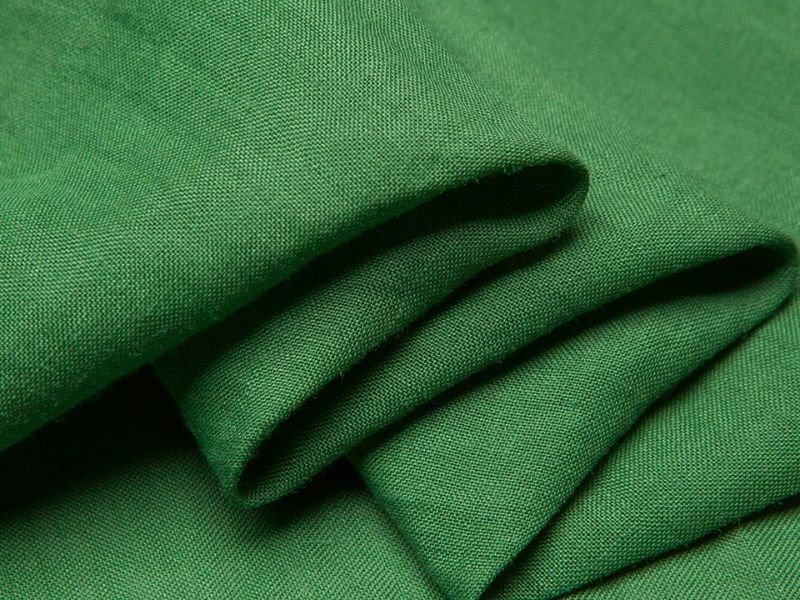
Ramie fabric is manufactured and utilized in numerous countries.
What are the primary traits of ramie fabric?
The technical specifications of ramie fabric have been announced as follows:
- In terms of appearance: the length of ramie fibers varies significantly from 40 – 200 mm and the fiber diameter is about 25-30 μm.
- Tensile strength: the tensile strength of hemp fibers varies from 400 – 1600 MPa so they can withstand large tensile forces.
- Weaving method: wet spinning or dry spinning. Wet spinning yarns are characterized by being smooth, soft, and highly lustrous. Dry spinning yarns, on the other hand, are stiffer, have less lustre, and have a rougher feel.
- The yarn can be blended with other natural fibers such as wool, cotton and silk to form the final fabric..
- Ramie is a bast fiber and is a single-cell cellulose fiber. It is one of the strongest natural fibers. Compared to all other bast fibers, ramie contains a high cellulose content with a composition of about 68.6 – 76.2% Cellulose, 0.6 – 0.7% Lignin, 13.1 – 16.7% Hemi-cellulose, 0.3% wax…
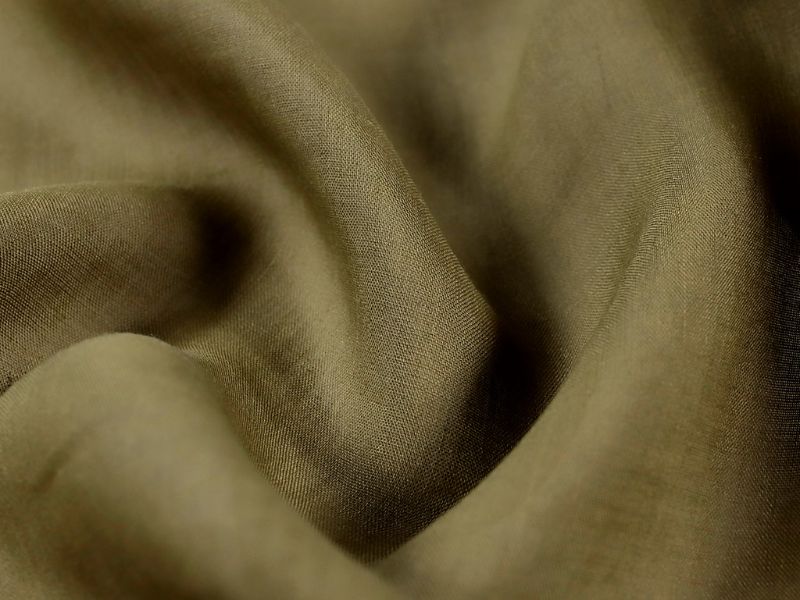
Main characteristics of ramie fabric for sewing costumes.
What are the pros and cons of ramie fabric?
Ramie fabric, made from natural fibers, has several notable benefits including being insect repellent, highly absorbent, and resistant to stains. However, one drawback is that it wrinkles easily, diminishing the overall aesthetic of the clothing.
Advantages of ramie fabric
The notable benefits of finished products made from ramie fabric include the following:
- Antibacterial and anti-insect: The hemp fibers in the fabric are resistant to bacteria, mold, rot, light and insect attacks such as ants.
- Absorbency: ramie fabric has excellent absorbency, so it feels very comfortable to wear, especially in hot weather.
- Stain Resistant: Because ramie fibers are naturally stain resistant, stains can be removed very easily similar to linen.
- Chemical resistance: ramie fabric Not damaged by mild acid and has alkali resistance. However, long-term immersion in strong alkali and acid will cause the fiber to lose strength and reduce durability due to hydrolysis of cellulose in the fiber.
- Less fading: ramie fabric does not fade when washed, but dark colored items will gradually lose color after repeated washing.
- Reliability: ramie fabric is high strength, nearly 6 times stronger than cotton and 2 times stronger than linen. This property increases when the fabric is wet.
- Fabrics made from hemp fibers can be keep shape long lasting and non-shrinking.
- Hemp fiber can be High water temperature resistance during washing and can be bleached.
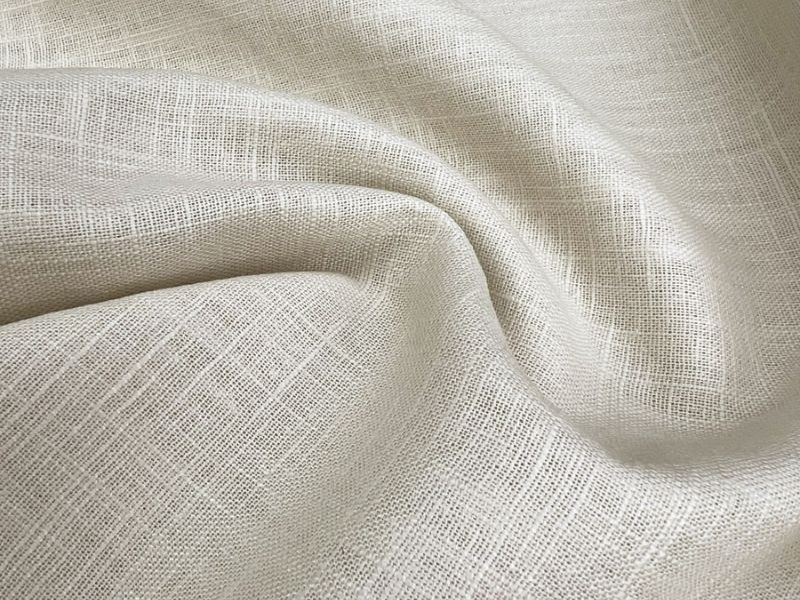
“Key Benefits of Ramie Fabric”
Limitations of ramie fabric
In addition to the numerous advantages mentioned earlier, fiber also has certain limitations.
- Elasticity: Raw Ramie fibers are hard and brittle, so they have low elasticity. This makes it difficult to draw.
- The abrasion resistance of the fabric is low.
- Wrinkle-resistant: clothes made from ramie fabric easily wrinkled when folded or moved. Therefore, during the production process, the fabric needs to be coated with anti-wrinkle agent to prevent wrinkles. In addition, the problem of wrinkles in woven fabrics can also be solved by blending with synthetic fibers.
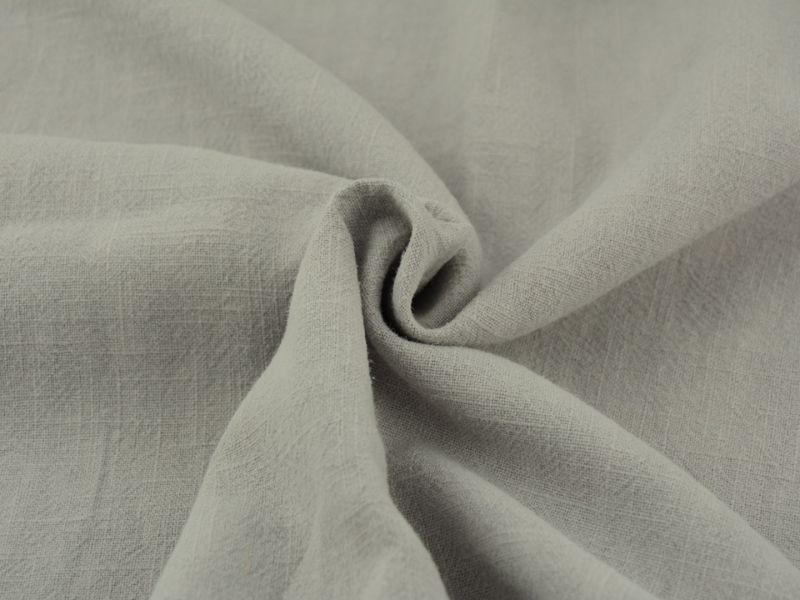
“Limitations of Ramie Fabric”
Ramie fabric is commonly used in the production of apparel, home decor, and textile products.
Ramie fabric finds its application in several fields including clothing, fashion accessories, and furniture. Irrespective of the product it is utilized for, the fabric proudly retains its exceptional inherent qualities.
Men’s and women’s fashion clothing made from ramie fabric.
Garments commonly made from ramie fabric include T-shirts, shirts, pants, pajamas, and skirts, which are often used in the summer. The fabric has a light shine, soft and smooth texture that is gentle on the skin. Moreover, high-quality ramie fabric gives a tidy and luxurious appearance, akin to wearing natural silk.
Ramie fabric costumes can be utilized for a range of activities like school, work, special events, or even for home wear. To enhance its properties such as stretch and anti-wrinkle, the yarn can be blended with both natural and synthetic fibers.
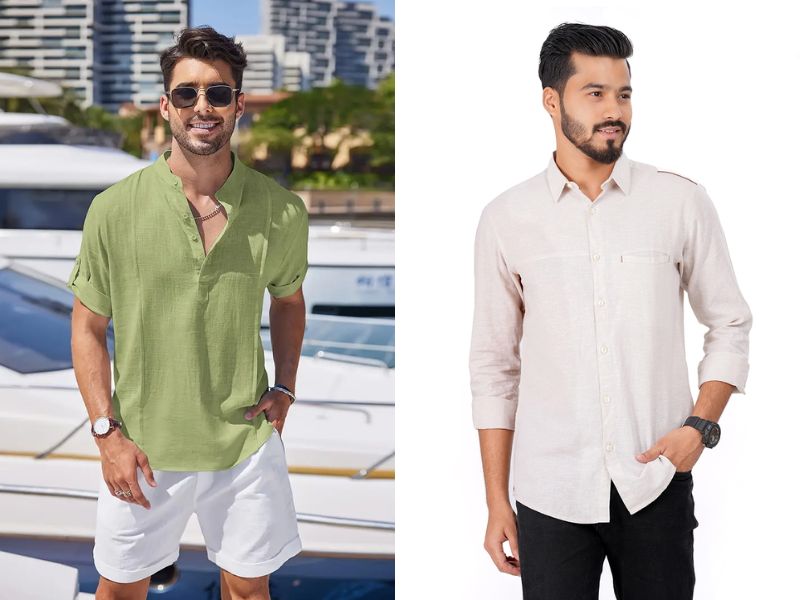
Ramie fabric is suitable for both men’s and women’s fashion clothing.
Ramie fabric for accessories
There are various types of accessories available, such as bow clips, fabric hair clips, head scarves, veils, scarves, and handkerchiefs. These luxury items are produced in large quantities using ramie fabric. With a naturally soft surface, light shine, and easy surface design, these delightful products add beautiful and charming highlights to your outfit.
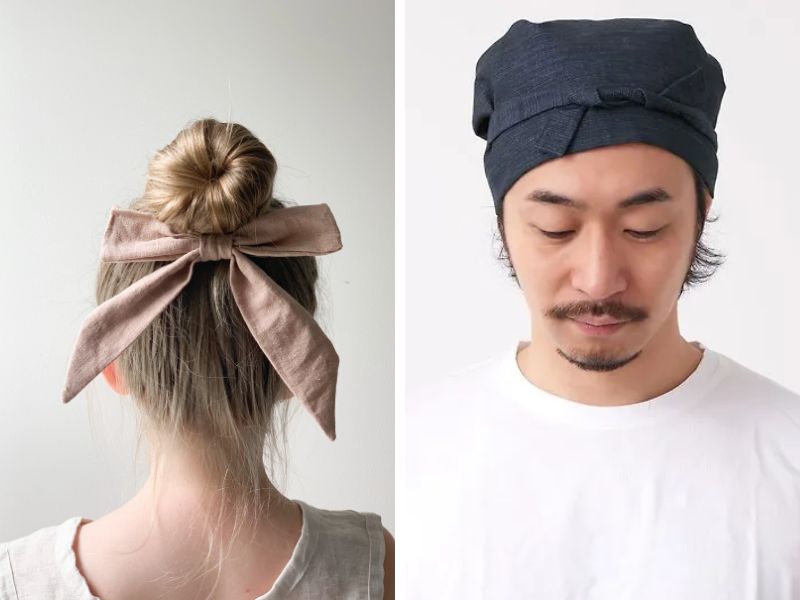
“Everyday accessories made with ramie fabric”
Ramie fabric for furniture
Ramie fabric is now commonly used for producing various household furniture items including interior curtains, duvet covers, sheets, pillows, and tablecloths. These products have the advantage of being easy to clean due to their anti-fouling properties. With just a simple cleaning process using a washing machine, these items can be easily refreshed.
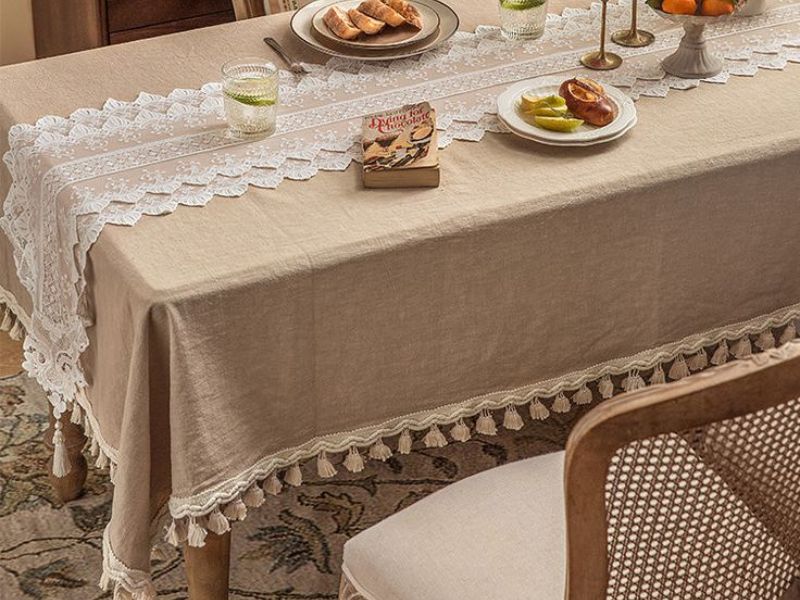
Ramie fabric is used for furniture in home decoration.
Hemp is utilized not only in the fashion industry, but also for creating fishing nets, tarpaulins, upholstery, sacks, straw hats, fire hoses, reinforced polymers, twine, crafts, and marine packaging.
What is the price of ramie fabric?
China is the leading producer of fiber and ramie fabric in the world. These products are mainly exported to European countries such as Japan, Germany, France, and England. The price of ramie fabric when exported is relatively high compared to other fabrics like cotton, viscose, and spandex. It is comparable to the price of silk of the same weight. Currently, in Vietnam, the price of ramie sheets with a weight of 75gsm is around 380,000 VND/m. Prices may vary for fabrics with different weights.
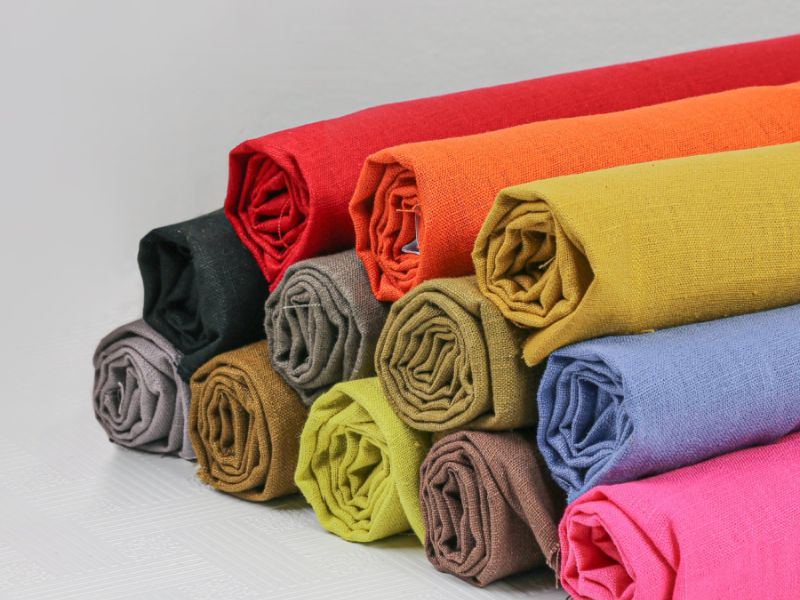
The current price of ramie fabric in Vietnam
Follow these instructions to properly preserve your ramie fabric items.
Preserving ramie fabric requires less care compared to natural silk. Clothing made from hemp or hemp blends can be safely washed either wet or dry, depending on your preferences. They are capable of enduring high pressure and can be washed at temperatures exceeding 100 degrees Celsius. As a result, you can machine wash them without the need for handwashing. However, due to the fabric’s high quality, it is recommended to wash it at room temperature and separate it from other colored garments.
You can dry items made from ramie fabric using an industrial dryer, hair dryer, or by letting them dry in natural sunlight. Just like with other clothes, make sure they are completely dry before taking them to a cool place to prevent the fabric from becoming stiff and fading. To keep clothes made from ramie fabric wrinkle-free, it is recommended to hang them instead of folding them.
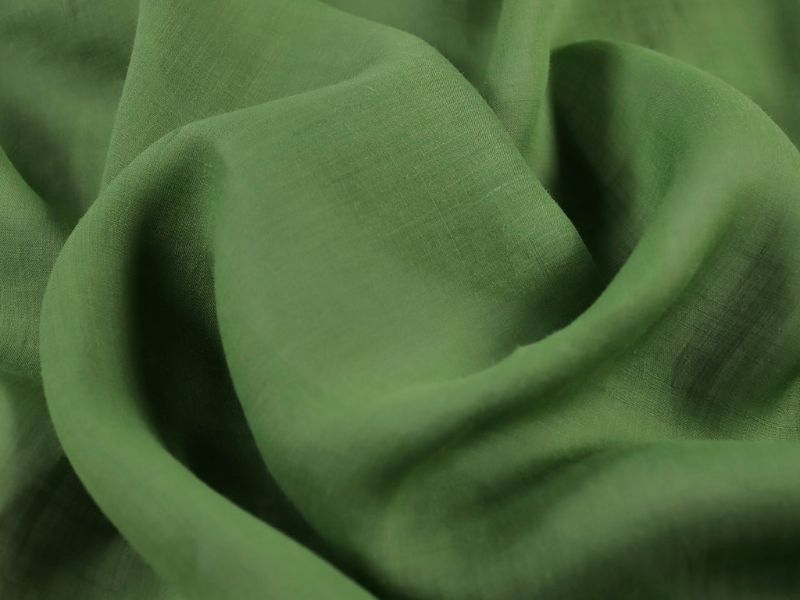
A straightforward method for preserving ramie fabric items.
Ramie fabric, renowned for its natural beauty, is adored by numerous users. Whether it’s shirts, dresses, or pants, garments made from ramie fiber ensure all-day comfort, even in scorching summer weather like that of Vietnam. Fashion Bandung has graciously provided valuable insights into ramie material, and we encourage you to keep following us for further information on clothing materials.
“Fashion Bandung – Stylish attire for men of high quality!”

